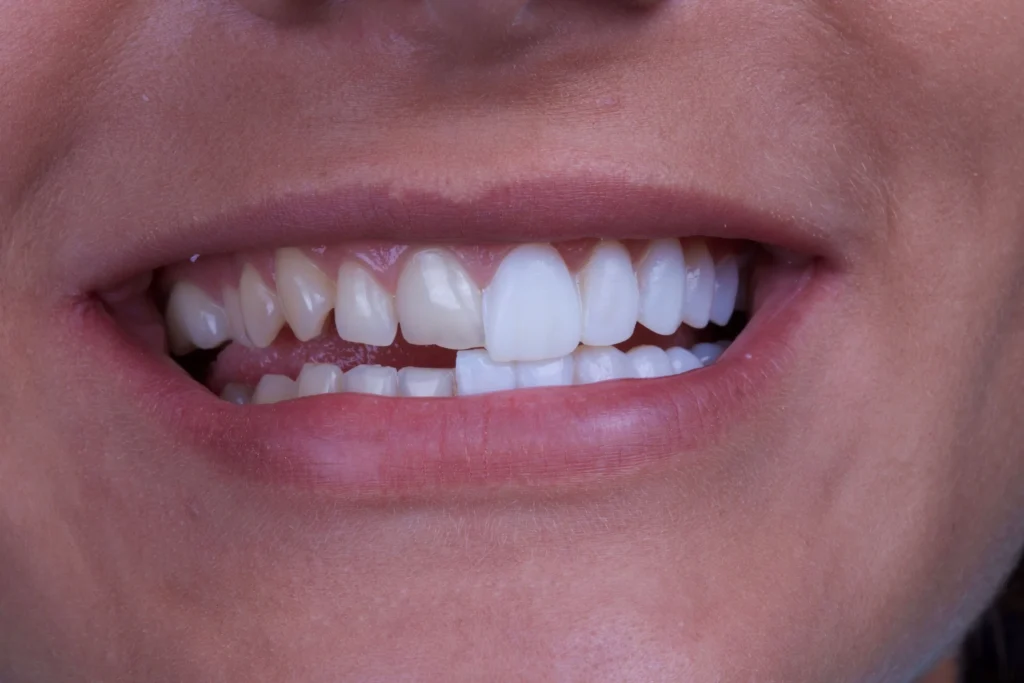Veneers are a popular cosmetic dentistry option for achieving a perfect smile. However, they can be quite expensive, leading many to wonder if insurance covers veneers. In this article, we’ll delve into the world of dental insurance and explore whether you can get coverage for veneers.
What are Veneers?
Veneers are thin layers of porcelain or composite resin bonded to the front of your teeth to improve their appearance. They can help fix various dental imperfections, such as:
- Discoloration
- Chips or cracks
- Gaps between teeth
- Irregular shape or size

Does Insurance Cover Veneers?
The short answer is: it depends. In most cases, traditional dental insurance plans do not cover veneers because they’re considered a cosmetic procedure. However, there are some exceptions and nuances to be aware of. Let’s break it down:
- Cosmetic vs. Medically Necessary Procedures:
Insurance companies typically distinguish between cosmetic and medically necessary dental procedures. Veneers are usually classified as cosmetic because their primary purpose is to improve the appearance of teeth rather than address a health issue.
- Exceptions for Medical Necessity:
In some cases, veneers might be partially covered if they’re deemed medically necessary. For example, if you have severely damaged teeth due to an accident or a medical condition, your insurance might cover part of the veneer treatment.
- Dental Savings Plans:
While not insurance in the traditional sense, dental savings plans (also known as discount plans) may offer reduced rates on veneers. These plans typically provide a percentage off the regular price for various dental procedures, including cosmetic treatments.
- Coverage for Alternative Treatments:
Your insurance might cover alternative treatments that can address similar issues as veneers. For instance, if you’re considering veneers to fix a chipped tooth, your insurance may cover bonding instead.
Cosmetic vs. Restorative Veneers
Insurance plans typically distinguish between cosmetic and restorative veneers.
| Cosmetic Veneers | Restorative Veneers | |
|---|---|---|
| Purpose | Improve appearance | Repair damaged teeth |
| Coverage | Usually not covered | May be partially covered |
Cosmetic veneers are considered elective, and most insurance plans don’t cover them. However, restorative veneers, which are used to repair damaged teeth, might be partially covered.
Types of Insurance Plans
The type of insurance plan you have also affects veneer coverage.
| Insurance Plan | Coverage |
|---|---|
| Indemnity Plans | May cover restorative veneers |
| PPO (Preferred Provider Organization) | May cover restorative veneers |
| HMO (Health Maintenance Organization) | Usually don’t cover veneers |
| Dental Savings Plans | May offer discounts on veneers |
How to Determine If Your Insurance Covers Veneers
If you’re hoping your insurance might cover veneers, here are some steps you can take:
- Review Your Policy: Start by carefully reading your dental insurance policy. Look for information about cosmetic procedures and any mentions of veneers specifically.
- Contact Your Insurance Provider: Reach out to your insurance company directly. Their customer service representatives can provide detailed information about your coverage and any potential exceptions.
- Get a Pre-Treatment Estimate: Ask your dentist to submit a pre-treatment estimate to your insurance company. This will give you a clearer picture of what, if anything, might be covered.
- Discuss with Your Dentist: Your dentist can help determine if there’s a medical necessity for veneers in your case, which could increase the likelihood of insurance coverage.
Also Read: Home Insurance in Newport, Shropshire
Are Veneers Covered by Dental Insurance?
Most dental insurance companies classify veneers as elective cosmetic procedures rather than medically necessary treatments. Here’s the distinction:
- Restorative Procedures: These are considered medically essential due to decay, disease, accidents, or other functional reasons (e.g., replacing missing teeth).
- Cosmetic Procedures: These aim solely to enhance smile attractiveness and don’t address underlying health issues.
Alternatives If Insurance Won’t Cover Veneers
If you find that your insurance won’t cover veneers, don’t lose hope. There are several alternatives you can consider:
- Financing Options: Many dental offices offer financing plans that allow you to spread the cost of veneers over time. Some even provide interest-free options for a certain period.
- Dental Schools: Dental schools often offer discounted rates for procedures performed by supervised students. While it may take longer, this can be a more affordable option.
- Dental Tourism: Some people choose to travel to countries where dental work is less expensive. However, be sure to thoroughly research the risks and benefits before considering this option.
- Saving Up: While it may take longer, setting aside money specifically for veneers can help you achieve your goal without relying on insurance or financing.
- Alternative Treatments: Discuss with your dentist if there are alternative treatments that might achieve similar results. For example, bonding or teeth whitening might address your concerns at a lower cost.

Factors Affecting Coverage
Even if your insurance plan covers restorative veneers, certain factors might impact the extent of coverage.
| Factor | Impact on Coverage |
|---|---|
| Policy limits | May have a maximum coverage amount |
| Deductible | You may need to pay a deductible before coverage kicks in |
| Co-pay | You may need to pay a percentage of the costs |
| Pre-authorization | May require approval before treatment |
FAQs
- Do all insurance plans cover veneers?
No, not all plans cover veneers. It depends on the type of plan and the reason for getting veneers. - Can I get coverage for cosmetic veneers?
Usually, no. Cosmetic veneers are considered elective, and most plans don’t cover them. - How much does insurance cover for restorative veneers?
Coverage varies but typically ranges from 50% to 80% of the costs. - Do I need pre-authorization for veneers?
It depends on your plan. Some plans may require pre-authorization, while others may not. - Can I use my health insurance for veneers?
No, health insurance plans don’t cover dental procedures like veneers. You need a dental insurance plan.
Conclusion
While dental insurance typically doesn’t cover veneers due to their classification as a cosmetic procedure, there are exceptions and alternatives to consider. The key is to thoroughly research your options, communicate with your insurance provider and dentist, and explore alternative financing methods if necessary.
Remember, investing in your smile can have significant benefits for your confidence and overall well-being. Even if insurance doesn’t cover the cost of veneers, many patients find the results well worth the investment. Always consult with a qualified dentist to determine the best treatment plan for your individual needs and circumstances.
By understanding your insurance coverage, exploring all your options, and planning, you can make an informed decision about whether veneers are right for you. Your perfect smile might be more attainable than you think!

Alisha Ray is the founder and chief editor of MoneyCocktail.com, a leading resource for finance, insurance, and share market insights. With a passion for empowering individuals to make informed financial decisions, Alisha combines her extensive knowledge and practical experience to provide clear, actionable advice.

